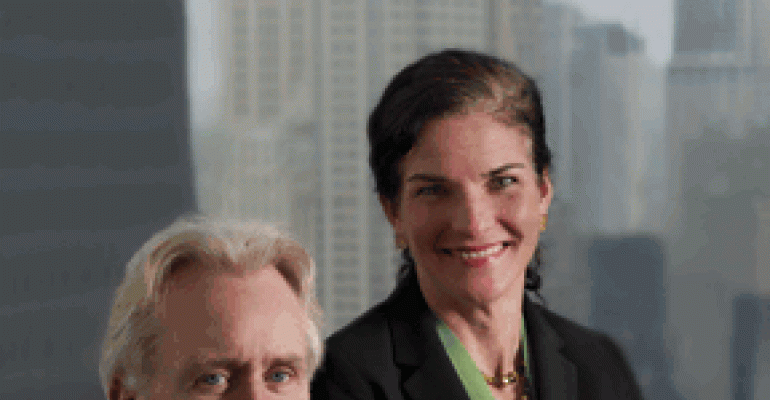
Location: New York City
Assets under Advisement: $5.5 billion
Production: $5.7 million
Expertise: Faith-based investing
The Catholic Church is deeply hierarchical, but broad discretion is left to member organizations in the area of investing, Merrill Lynch advisor James Ryan says. “So every parish is responsible for its money, every order of priests is responsible for its money, … and the bishop in that diocese really has no control over it. There are tens of thousands of portfolios and tens of thousands of decision makers out there,” he says.
Ryan and his team of four have developed an expertise in the area of faith-based investing, mostly for Catholic institutional clients, over the past five years. About 25 percent of their institutional clients fit that description, representing $500 million in assets under management. Ryan knows his way around a church as well as a brokerage; the youngest of five, he has one brother who's a priest and another who's a Trappist monk. “With my family background, it's very easy for me to play in these circles,” he says.
When Ryan sits down with Catholic clients, the conversation usually starts around guidelines composed in 2003 by the U.S. Council of Catholic Bishops on socially responsible investing. “But it does not say, ‘Thou shalt not own this’ or ‘Thou shalt do that.’ It's based on the premise that you're going to form your own conscience.” Ryan says. Firms with strong connections to abortion are excluded by his clients, but beyond that, much remains on the table for discussion.
For example, a screen that Ryan uses for investment selections once flagged drugmaker Pfizer because a chemotherapy drug it produces had an off-label use as an abortifacent. That surprised a group of nuns who were Ryan's clients; they were impressed with the company's efforts to provide sub-Saharan Africa with AIDS drugs. Ryan told them the company collected less than 1 percent of revenues from the product. He said the nuns decided to include it in their portfolio, regarding the company's involvement in Africa as a greater good.
Technology and other changes in the industry have made faith-based investing easier. Separately managed accounts offer more flexibility than mutual funds when choosing faith-suitable companies to own stock in, but SMAs used to have higher investment thresholds. “Now you can hire an emerging market portfolio manager with a separately managed account that allows you to screen the individual names for a half-million dollars,” Ryan's partner, Courtney Moore, says.


